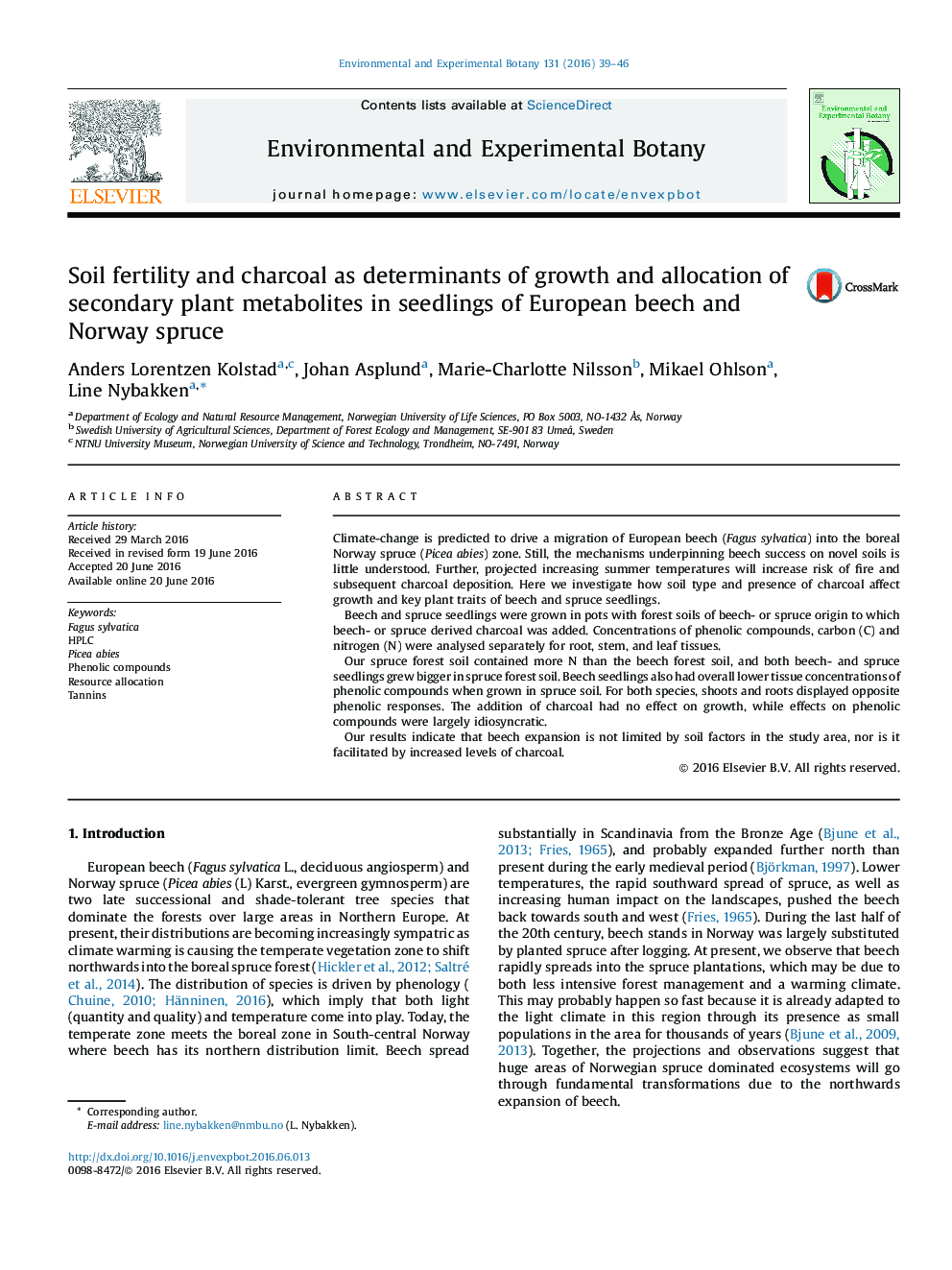| کد مقاله | کد نشریه | سال انتشار | مقاله انگلیسی | نسخه تمام متن |
|---|---|---|---|---|
| 4553997 | 1628046 | 2016 | 8 صفحه PDF | دانلود رایگان |
• Beech and spruce seedling growth was greatest on spruce-forest soil characterised by high N levels.
• This suggests that edaphic factors will not limit the northward expansion of beech.
• Spruce-forest soil increased phenolic concentrations in roots and decreased it in shoots.
• The dichotomy in shoot vs root responses in phenolics worked to even out the whole-plant responses.
• Highlight the need to do multi-organ analysis when testing for trade-offs between growth and defence.
Climate-change is predicted to drive a migration of European beech (Fagus sylvatica) into the boreal Norway spruce (Picea abies) zone. Still, the mechanisms underpinning beech success on novel soils is little understood. Further, projected increasing summer temperatures will increase risk of fire and subsequent charcoal deposition. Here we investigate how soil type and presence of charcoal affect growth and key plant traits of beech and spruce seedlings.Beech and spruce seedlings were grown in pots with forest soils of beech- or spruce origin to which beech- or spruce derived charcoal was added. Concentrations of phenolic compounds, carbon (C) and nitrogen (N) were analysed separately for root, stem, and leaf tissues.Our spruce forest soil contained more N than the beech forest soil, and both beech- and spruce seedlings grew bigger in spruce forest soil. Beech seedlings also had overall lower tissue concentrations of phenolic compounds when grown in spruce soil. For both species, shoots and roots displayed opposite phenolic responses. The addition of charcoal had no effect on growth, while effects on phenolic compounds were largely idiosyncratic.Our results indicate that beech expansion is not limited by soil factors in the study area, nor is it facilitated by increased levels of charcoal.
Journal: Environmental and Experimental Botany - Volume 131, November 2016, Pages 39–46
